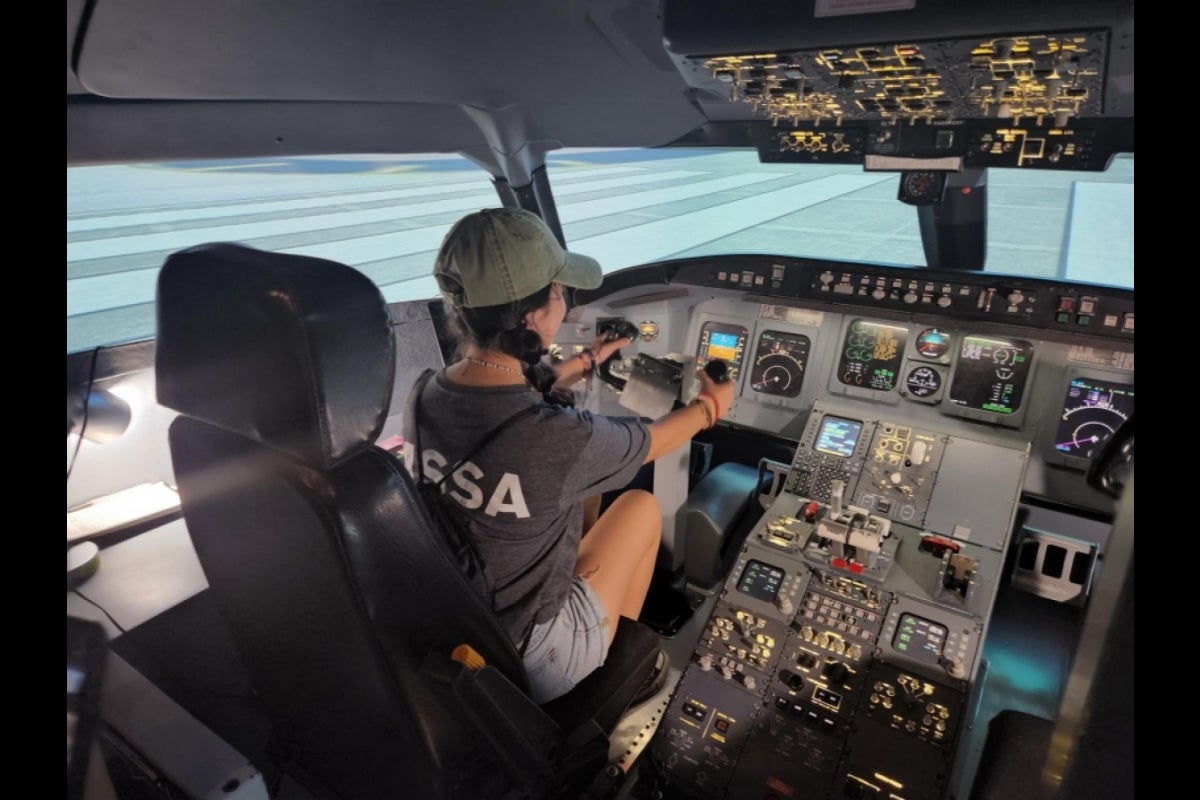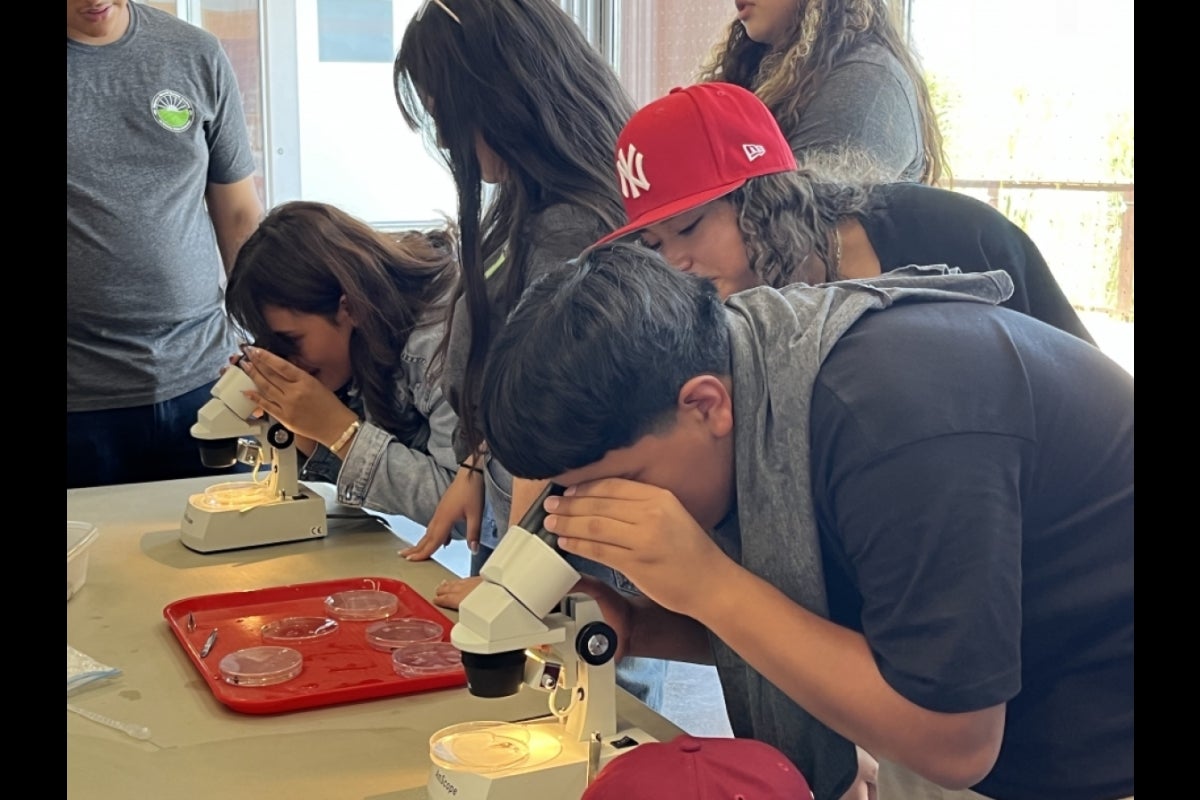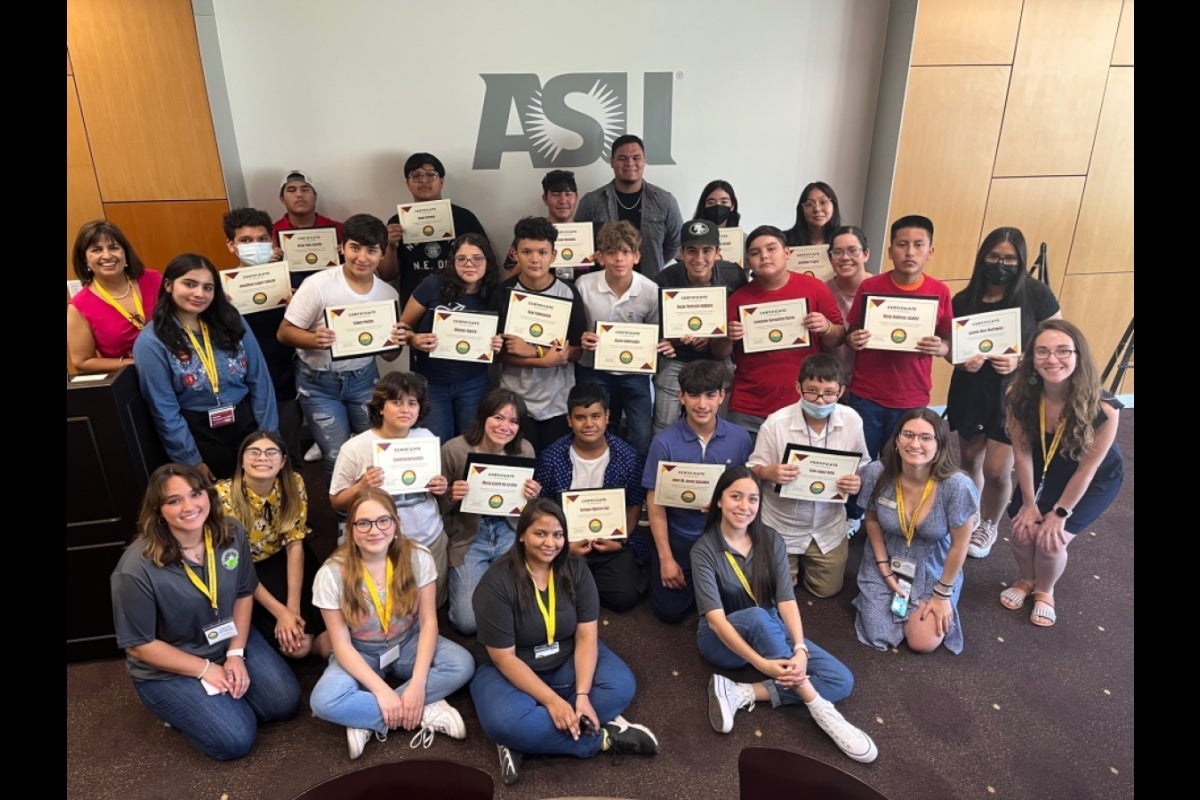Summer academy provides hands-on STEM experiences for children of migrant farmworkers

Migratory Student Summer Academy students work on a laboratory activity at the ASU School of Molecular Sciences.
Faculty and staff from the School of Molecular Sciences provided hands-on laboratory activities and interacted with high school students in Arizona State University's Migratory Student Summer Academy, hosted by the School of Transborder Studies.
The academy is a state-funded program that provides instruction about STEM content and careers, helping migratory students develop leadership, confidence and critical thinking skills in a residential camp setting.
Each week for three weeks, a cohort of 20 to 25 students in the program increased their knowledge of STEM topics and areas of study through lab activities, such as forensics, determining the pH of household chemicals and building a battery using pennies. In addition to exploring chemistry, students in the program also learned about engineering, physics and biology.
“Working with these students gave us the chance to share our love of chemistry and biochemistry as well as the career opportunities available to those with degrees in these areas. We encouraged them to join us at Arizona State University to pursue their own dream careers,” said Barbara Munk, School of Molecular Sciences associate director of operations.
Academy activities also included leadership workshops, hand-on classroom instruction and socio-cultural enrichment. Each activity was tied to an Arizona Department of Education academic standard and provided participants the opportunity to engage in applied math and science. Program mentors included ASU undergraduates who built supportive relationships with participating students, serving as role models, STEM teaching assistants and facilitators.
By the end of the academy, students were able to list three to four times as many STEM careers compared to the start of the program. The majority of students reported that the program’s content is relevant for their futures.
“It was a pleasure to introduce these eager young learners to new concepts and ideas and a joy to see them understand how fundamental STEM concepts permeate our everyday lives,” said Chad Borges, School of Molecular Sciences associate director of undergraduate programs.
More Science and technology

ASU professor wins NIH Director’s New Innovator Award for research linking gene function to brain structure
Life experiences alter us in many ways, including how we act and our mental and physical health. What we go through can even…

ASU postdoctoral researcher leads initiative to support graduate student mental health
Olivia Davis had firsthand experience with anxiety and OCD before she entered grad school. Then, during the pandemic and as a…

ASU graduate student researching interplay between family dynamics, ADHD
The symptoms of attention deficit hyperactivity disorder (ADHD) — which include daydreaming, making careless mistakes or taking…


